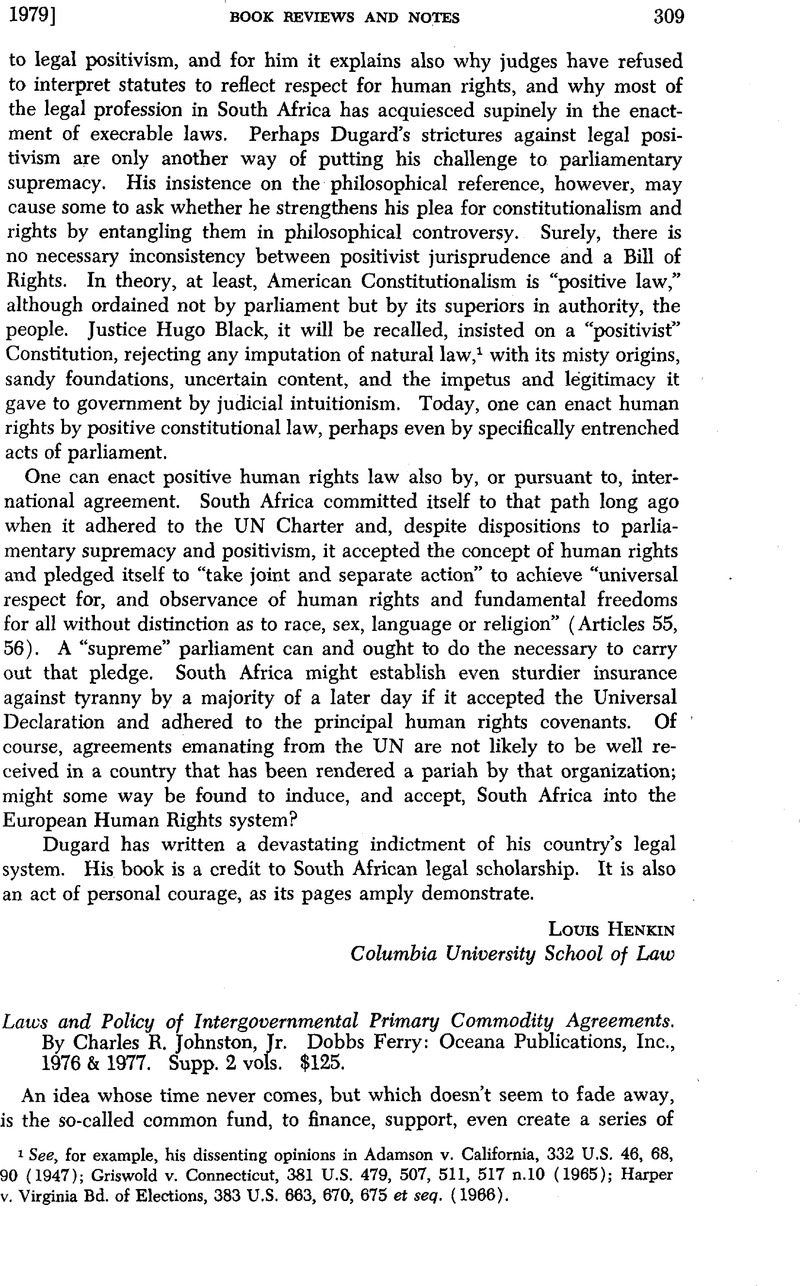No CrossRef data available.
Article contents
Laws and Policy of Intergovernmental Primary Commodity Agreements. By Charles R. JohnstonJr. , Dobbs Ferry: Oceana Publications, Inc., 1976 & 1977. Supp. 2 vols. $125.
Published online by Cambridge University Press: 27 February 2017
Abstract

- Type
- Book Reviews and Notes
- Information
- Copyright
- Copyright © American Society of International Law 1979
References
1 See, e.g., B. Fisher, The international coffee agreement. A study in coffee Diplomacy (1972). A shorter and earlier version of The same story appears in A. Chayes, T. Ehrlich, A. Lowenfeld, International Legal Process, Vol. I, ch. 8 (1968). I updated The story through 1972 for my students but did not publish The result when it became apparent that as extended beyond 1972, The International Coffee Agreement was only a shell, not a real instrument of international control.
2 The initials are drawn from The Spanish name of The Organization.
3 For some attempt at this, see Chayes, Ehhlich, & Lowenfeld, note 1 supra; see also Lowenfeld, , International Commodity Controls—Some Lessons from The Coffee Agreement, 61 Ajil 785 (1967).Google Scholar
4 In his 1100-page teaching materials on International Economic Relations (1977), Jackson devotes about 12 pages to The subject; in my own series of volumes on International Economic Law (Vols. I-VI (1975-78)), I have thus far not addressed The subject, but I might do so in The context of a volume on economic development if The right focus were to emerge.




